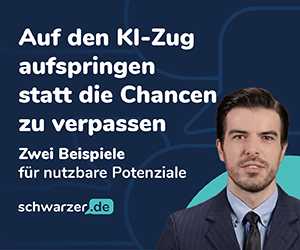The “German Industry 4.0 Index 2022” by management consultants Staufen concludes that more and more companies are digitizing their products and services. Or they are even developing complete 4.0 business models. Compared to the pre-Corona year 2019, the index was able to increase from 32 to 44 points in the Smart Business category. 350 top executives of German companies were surveyed for the survey.
Table of Contents: What awaits you in this article
Digitization paves the way
Frank Krüger, who as Senior Partner at Staufen AG is responsible for the topic of digitization says: “Digitization is more than just an efficiency turbo. The use of modern technologies triggers follow-up projects within companies and leads to a more offensive basic attitude.
Transformation capability therefore knows no end point, but triggers a positive chain reaction.” In the view of the digitization expert, the establishment of a smart factory is therefore an initial spark that leads to smart products and services.
Smart business models are already commonplace
Staufen AG has been surveying the German Industry 4.0 Index at regular intervals for eight years now. This has now risen in the smart business category from 32 points in 2019 to 44 points in 2022. “This positive development shows that smart business models are no longer showcase projects, but are part of everyday operations in many companies,” explains Krüger. “However, our study results also show that there is still a split in the industry between digital pioneers and laggards.”
Roadmap needed for laggards
Dr. Lars Reinkemeyer, Vice President at Staufen technology partner Celonis, confirms, “The gap between trailblazers and laggards is widening. To improve this situation, the somewhat slower companies need to establish a clear roadmap. To do this, they need a defined goal, the achievement of which can be measured – ideally on the basis of process or transaction data. The focus is not only on strategic alignment, but also on concrete transformation through new products and business models.”
Smart Factory index shows current gap in the economy
The Smart Factory index category illustrates above all how large the gap currently is in the German economy. Since 2019, the associated index value has stagnated at 45 points. Industry 4.0 expert Krüger says: “So far, only just under every second company is actually implementing the Smart Factory operationally.
The others are observing and testing or have not yet entered the topic.” He advises companies to make a gradual transition: “It’s important to reduce the number of different process variants in order to enable automation via standardization.”
Companies can then use these to relieve employees of simple and monotonous tasks on the one hand and reduce their transaction costs on the other. “Particularly against the backdrop of the ever-increasing shortage of skilled workers, a smart factory can thus ensure production reliability in German industry in the long term,” says the Staufen consultant.














